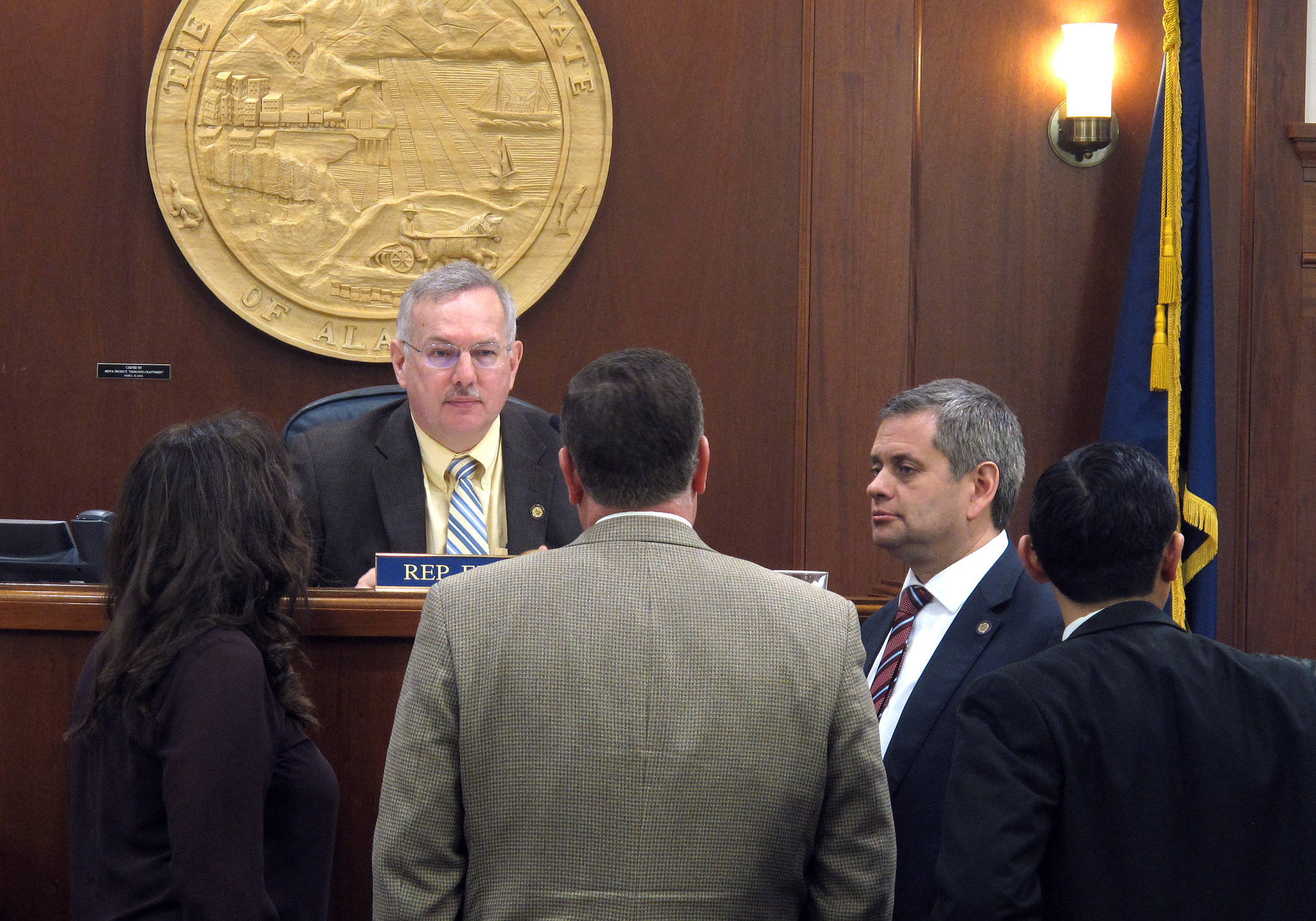JUNEAU — Wednesday marked a constitutional deadline for Alaska lawmakers to end their regular session. But with a budget and plan for addressing Alaska’s multibillion-dollar deficit unresolved, more time was needed.
Options included extending the session for another 10 days, which requires two-thirds support in each chamber, or looking to Gov. Bill Walker to call a special session. House Speaker Bryce Edgmon said Wednesday there didn’t appear to be sufficient support to extend the session.
As of press time on Wednesday, both the House and the Senate remained in session.
House Minority Leader Charisse Millett said Tuesday that the House majority coalition, composed largely of Democrats, had failed during an already extended session to stay focused on the budget and a fiscal solution and that her Republican caucus was not inclined to support an extension. Support from within Millett’s caucus was needed to meet the two-thirds threshold in the House.
“At this point, obviously, we need the governor to lead the House majority to narrow the focus,” Millett said Tuesday. Under a special session called by the governor, the agenda would be limited to items he puts on it.
Edgmon, a Democrat from Dillingham, said that ideally the House would be working on fiscal issues with the Senate. But the two sides are at odds over how best to move forward.
“We’re going to stay here until we get the package that puts Alaska in the best shape to go forward and we don’t have to continue cutting schools and other important public services,” Edgmon said.
Lawmakers in April blew past a 90-day, voter-approved regular session limit. Wednesday marked the 121-day constitutional limit.
Over the last month, work has continued, particularly in the House, on bills not related to the budget or a fiscal fix. Bills on the House’s lengthy floor calendar Wednesday included a measure that would bar wolf hunting and trapping in certain areas adjacent to Denali National Park and Preserve and legislation that included what were seen as technical fixes to a sweeping criminal justice measure passed last year.
Edgmon said his coalition committed to staying busy and addressing other bills of importance while the Legislature was meeting. Bills that are alive at the end of the regular session will remain in play when the next regular session opens next year.
The Republican-led Senate, meanwhile, Wednesday approved allowing ride-share companies, like Uber and Lyft, to operate in Alaska. That bill now goes to Walker for consideration.
When it comes to a fiscal plan, there’s general agreement about using earnings from Alaska’s oil-wealth fund — the Alaska Permanent Fund — to help fill the deficit. But there is sharp disagreement over what else should be done.
The House majority has insisted on a broad-based tax, like an income tax, and changes to oil tax and credit policy as part of an overall solution. The Senate, meanwhile, has rejected the income tax bill passed by the House and proposed limits on future state spending.
The Senate also has proposed cuts to public education and the university system that the House majority considers too deep.
While lawmakers have moved to end future cashable oil tax credits, seeing the program that financially rewards oil exploration and production as too expensive, House majority members favor further changes to the state’s oil tax system than the Senate has supported.
Jessica Geary, finance manager for the Legislative Affairs Agency, said she did not have accurate reporting for extended session costs so far.

